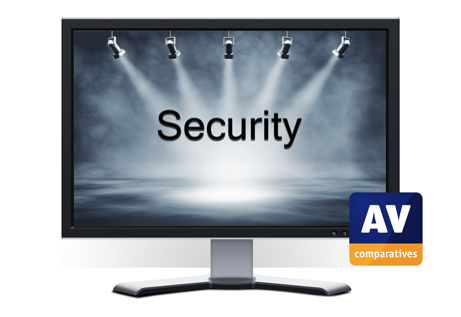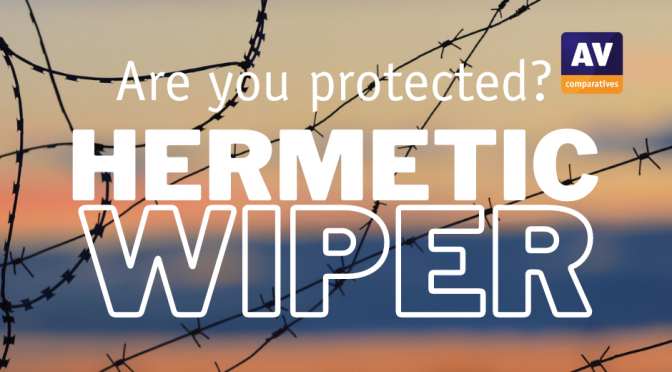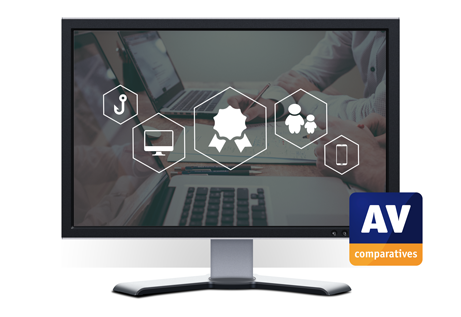In recent years, the Internet has become an indispensable part of our daily lives. We use it for communication, shopping, entertainment, and more. Unfortunately, with the convenience of the Internet comes the potential for malicious actors to exploit it. Two of the many forms of deception used by cybercriminals are fake online shops and fake websites (the latter also known as phishing websites). Whilst these may sound similar, they are in fact quite different forms of deception, and so different measures are required to avoid falling victim to them.
Security News
On this page you will find links to selected IT-security related news articles from various sources, including news from conferences and some test results. Posts in this category might be written by externals and students. If you find some interesting news, please let us know!
AVAR 2022 Conference in Singapore
The AVAR 2022 Cybersecurity Counterpunch conference is taking place on 1st and 2nd December.
AV-Comparatives is supporting the AVAR security conference again this year, organised by the Association of Anti-Virus Researchers Asia. AVAR 2022 is the 25th edition of AVAR’s international conference, and the event is taking place on the 1st and 2nd of December 2022 in Singapore. Full details and the registration form can be found on the organisation’s website: https://aavar.org/cybersecurity-conference/
LSASS credential-dumping security
Windows’ Local Security Authority Subsystem Service (LSASS) is one of cybercriminals’ targets when launching targeted attacks on an organisation’s network. In this blogpost, we discuss the significance of this process to targeted attacks.
The balance between performance (low speed-impact) and real-time detection
In the past, a common complaint about antivirus programs was that they had a major impact on system performance, i.e. made the PC run more slowly in everyday use. Nowadays, anti-virus products use different optimization techniques to reduce system impact and disruption of everyday tasks.
In this blog post we want to answer the question as to whether any of the performance-enhancing measures taken by anti-virus vendors might have an impact on products’ ability to detect malware under some circumstances. To this end, we checked whether anti-virus products consistently detect malware in specific scenarios.
Uninstalling antivirus programs: challenges and solutions
Have you ever tried to remove a program from your computer, and found that bits of it were left behind? If so, you will realise that not all uninstallers remove their programs completely, and that the leftovers can cause problems like error messages and wasted disk space. In the case of antivirus programs, which are deeply integrated into the Windows operating system, an incomplete uninstallation can be particularly problematic. It might be impossible to install a new AV program if its installer finds traces of the previous product. So, if you need to remove one AV product in order to install a different one, the issue of AV uninstallation becomes important.
In a test commissioned by the German PC Magazin (Ausgabe 06/2022), AV-Comparatives recently carried out an uninstallation test of 16 popular consumer antivirus programs (PDF version available here).
AV-Comparatives tests Anti-Virus Software protection against the Hermetic Wiper malware
Austrian IT-security testing lab AV-Comparatives has tested protection against the recently-emerged Hermetic Wiper malware.
The data-wiping malware has been used in international targeted attacks. Its aim is not to steal money or data, but simply to make victims’ computers unusable. To do this, it abuses the services of a legitimate company that makes disk partitioning software. This type of utility can create, modify and delete the data storage areas (partitions) of a computer’s system disk. Hermetic Wiper makes (unauthorised) use of this useful utility program to corrupt the system disk’s boot information, meaning that the computer cannot start up. The malware then overwrites the partitions on the disk, making the data on them unreadable, even if the disk is transferred to an uninfected computer.
Why you should never have multiple antivirus programs on your computer
Life is often about multiplicity. The more the merrier. Two heads are better than one. Strength in numbers. You get the idea. But when it comes to antivirus, it’s more a case of too many cooks in the kitchen.
We often hear from users who assumed that installing multiple antivirus solutions on their computer would improve their chances of detecting any malicious files before they do any damage. However, while it is a good idea to have multiple complimentary security products in place if you take your security seriously, this doesn’t extend to multiple full antivirus solutions. Having several antivirus products in place won’t do much to improve your machine’s security – in fact it’s likely to cause you some serious problems.
Upcoming AV-Comparatives’ Certification Tests 2022
As in previous years, we will be running certification tests for the following products:
- Anti-malware programs for macOS
- Anti-malware apps for Android
- Phishing protection for Windows and other platforms
- Parental control features for Windows and other platforms
- VPN programs for Android and Windows
We also offer various enterprise security tests and penetration tests.
Security vendors interested in any of above tests are invited to contact us by the 31st of March 2022.
Mac vs Windows: is Apple really more secure?
Mac or Windows? It feels like we’ve been debating over this for most part of the modern decade. Remember Apple’s “Get a Mac” campaign in 2006, where a personified Mac and Windows PC argued about who was the best operating system? Both companies have long been waging such marketing campaigns against each other to influence users.
It’s mostly down to personal preference, and we won’t weigh in. But one thing that does need to be taken out of the debate is cyber security.
Norton and Avira Ethereum Mining: Why Are AV Vendors Offering Crypto Services?
Avira and Norton are now offering customers the ability to mine cryptocurrency – for a fee.
Both AV vendors have introduced a new service which can mine Ethereum whenever a user’s computer is sitting idle. Customers will then be able to deposit any Ether their computer has mined into their own crypto wallet after giving NortonLifeLock, owner of both Avira and Norton, a 15% share of the proceeds. The crypto-mining services offered by both vendors are very similar, with the same rules applying to both Avira Crypto and Norton Crypto.










